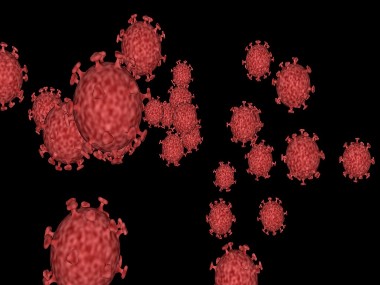Some disturbing trends are becoming apparent as the world battles the COVID-19 pandemic. Data from countries with high caseloads suggest that while younger people are less likely to develop severe complications, a substantial number of them still may have adverse outcomes. According to the latest data from The Washington Post, over 750 people under 50 have lost their lives to the disease in the US. These deaths are not simply explained away by ‘underlying conditions’ - some perfectly healthy people have lost the battle as well. [caption id=“attachment_8237661” align=“alignleft” width=“380”]  Representational image. Image by HenkieTenk from Pixabay.[/caption]
The concept of cytokine storm
The answer to some of these deaths may lie in slight genetic differences that cause the immune system to overreact and cause widespread inflammation. The body responds to pathogens by releasing molecules called cytokines that set up an immune response to kill off the invader. Those with healthy immune systems fare better when sick, but in some cases, the response is not able to shut itself off, and a so-called ‘cytokine storm’ ensues. This can lead to widespread organ damage which can be fatal if not treated in time. Some young patients, who appear stable at first, rapidly deteriorate and show signs of this phenomenon - a rapid heart rate, high fever and low blood pressure. Clinical tests have shown raised amounts of the protein ferritin, which is associated with a cytokine storm. Why does COVID-19 trigger such an immune response? The answer to this remains unclear, but autoimmune diseases such as Lupus also force similar reactions from the body. Doctors have adopted the clinical management of such autoimmune diseases to combat COVID-19 patients experiencing a cytokine storm.
What treatments are available?
Molecules linked to overactive immune systems include interleukin-6, interleukin-1 and interferon-gamma. Drugs to suppress their activity, including tocilizumab, have received FDA approval for testing on patients with severe symptoms. Hydroxychloroquine, the anti-malarial drug, is also known for simmering down an overactive immune system. Corticosteroids are being investigated as well since they also blunt the overall immune response. Anecdotal reports have suggested that patients have responded well to interleukin inhibitor therapy. However, there are many risks involved. It is not yet understood why COVID-19 triggers an overactive immune response, and it is not known if it is safe to use immune-suppressing drugs when battling with an infectious disease. Regeneron, a biopharmaceutical company, is in the midst of clinical trials to test the safety and efficacy of a drug that can inhibit a cytokine storm. Drugs such as tocilizumab will continue to be used for emergencies, but more studies are required to improve the safety and targeting of these classes of drugs for COVID-19. For more information, read our article on Passive Antibody Therapy_._ Health articles in Firstpost are written by myUpchar.com, India’s first and biggest resource for verified medical information. At myUpchar, researchers and journalists work with doctors to bring you information on all things health.


)

)
)
)
)
)
)
)
)



